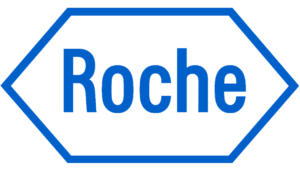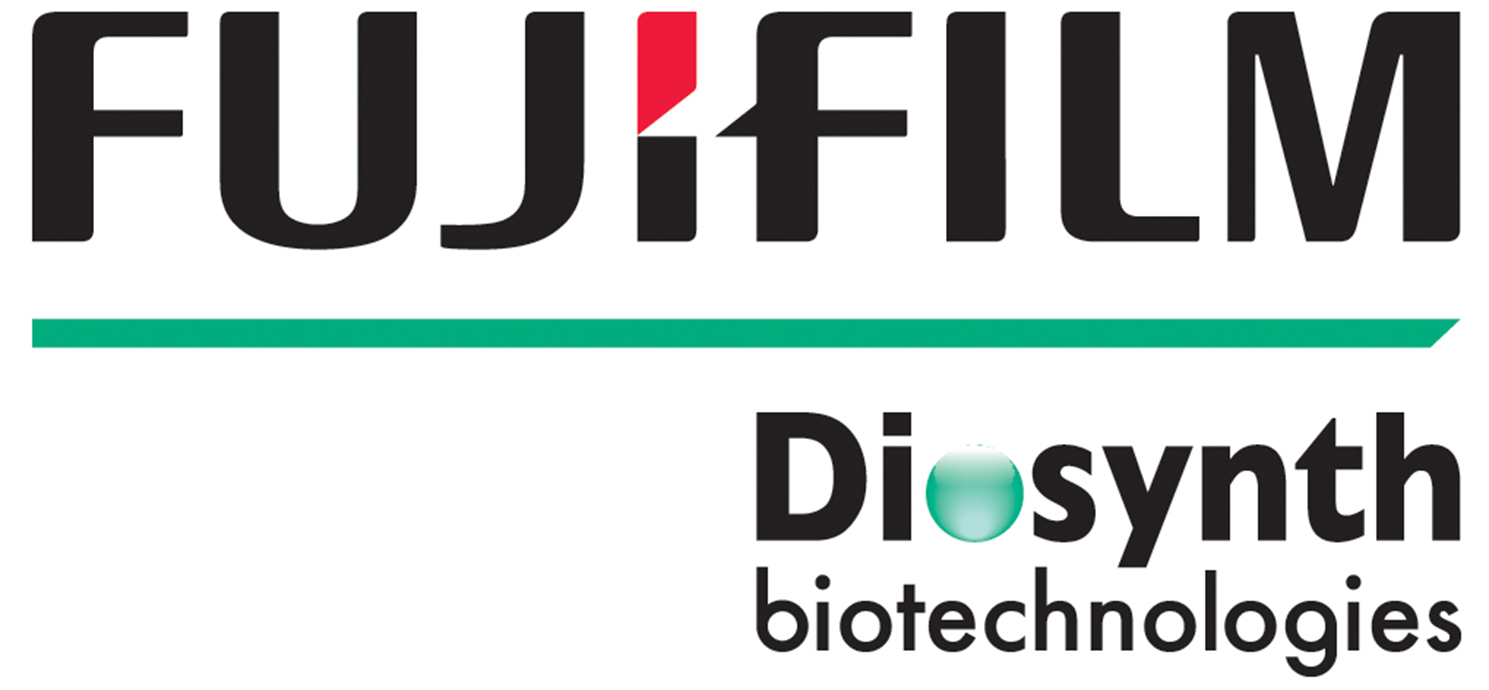Our CDT collaborates with a variety of partners across industry, academia, the third sector and NHS. Some of the key industry partners supporting the CDT are featured here.

Roche Pharmaceuticals
Given the challenges facing healthcare systems in the UK and around the world, we believe that AI applications such as early disease detection and prognosis, healthcare assistants, automation of data analysis, and decision support will all play a crucial role in the coming decades.
A critical component of our business strategy is our commitment to
develop sustainable competencies in data science, data engineering, informatics, and data governance.
We are keen to engage with the AI Centre for Doctoral Training for a number of reasons amongst which
are the commitment to realise the potential of AI and the translation to ‘real world’ outcomes, a strategy
that fully fits with our policy to create value for patients and healthcare systems.

GSK
As a leading global biopharmaceutical company, GlaxoSmithKline (GSK) recognizes the importance of fostering a pipeline of talented and innovative researchers to drive advancements in biomedical
innovation. By coordinating and working with the Centre for Doctoral Training in Biomedical Innovation, GSK expects to leverage the centre’s expertise and resources to attract and develop
top-notch PhD students who can tackle complex biomedical challenges. The company anticipates that this collaboration will enable GSK scientists to mentor and guide students on cutting-edge research projects, providing valuable industry insights and practical applications of academic discoveries.
Moreover, GSK sees this partnership as an opportunity to bridge the gap between academia and industry, promoting a culture of innovation and entrepreneurship within the biomedical community.
By supporting the training of the next generation of researchers, GSK aims to ensure that its own R&D efforts remain at the forefront of scientific progress, while also contributing to the broader
advancement of medical knowledge and the development of new treatments for patients worldwide.

UCB Biopharma UK
As a leading healthcare investor and provider, we see artificial intelligence as an integral part of our work, serving as a tool that benefits research scientists, clinical scientists, and various other parts of our business. Over the past few years, we have been integrating AI into our organisation, using it to understand patient conditions more deeply, to search for more effective treatment targets, and to accelerate the identification of the right therapeutic candidates.
We believe these collaborations, utilising the large-scale acquisition of data in the biomedical domain, particularly in healthcare and genomics, can help create a world-class environment for innovation. In this setting, we hope to realise the development of better, more focused solutions for all users across healthcare, including patients, carers, and clinicians.

AstraZeneca
AstraZeneca collaborate with academic institutions and non-profit R&D partners globally to access the best science, to stimulate innovation and to deliver life-changing medicines to patients.
AstraZeneca had more than 1,500 active academic collaborations during 2023. They support more than 900 early career positions in R&D globally, including graduates, placement students, sponsored PhDs, and postdoctoral researchers.
Through their Open Innovation programme, AstraZeneca openly share molecules, data and challenges with academic researchers.

Optos
Optos have been a pioneering retinal imaging company for over 30 years. Born out of a need to preserve the sight of the founder’s son, we have grown to be the technology leader in our field – with products as likely to be found in High-Street Opticians or some of the World’s leading Eye Hospitals. We are now part of the Nikon Healthcare Division, and delivering a broad range of products aligned to a mission of Saving Sight and Saving Lives.
We work with our Academic partners – such as the University of Edinburgh – to ensure that this mission continues, and we keep bringing impactful technology to our customers – ultimately to benefit their patients.

Canon Medical Research Europe
At Canon Medical Research Europe we are committed to a triple helix approach for our research, involving close collaboration of Academia, Industry and Healthcare professionals. We feel this is the only way to succeed in creating innovative solutions that both address current needs and can be implemented at the scale required to transform healthcare and patient journeys.
By working with the University of Edinburgh in this way we can find new and deeper collaborations to help us advance our work, as well as helping to train the next generation of AI scientists.

NEC
NEC Labs is part of NEC’s Life Science Innovation Hub, designed to orchestrate the functions of NEC’s AI Drug Development Division within Europe. Our computational pipelines combine bioinformatics and machine learning approaches for the development of new therapies across a wide range of clinical needs.
A key goal for NEC Labs is social implementation and we are particularly excited by the way that the CDT in Biomedical Innovation has been designed to focus on innovative research yet at the same time to bring emphasis to how innovations can translate into real-world use.

FUJIFILM Diosynth Biotechnologies
FUJIFILM Diosynth Biotechnologies is a leading contract development and manufacturing organization (CDMO) providing process development and manufacturing of biologics. Data Driven Decision Making for Bioprocessing is increasingly adopting Machine Learning/ AI via the application of advanced digital technologies.
We look forward to coordinating with the Centre for Doctoral Training In Biomedical Innovation through designing new research questions and supporting the development of innovative outcomes and supporting talent development in the ever increasingly important topic of AI and Machine Learning in the biomedical sector.

Scottish Informatics and Computer Science Alliance (SICSA)
SICSA’s remit is to foster collaboration across research, knowledge exchange, research student training and computer science education across 14 Scottish universities. We also act as the gateway to Scottish Computing Science for international partners, industry, government and the third sector, speaking as the voice of Scottish Computing Science. The Biomedical Innovation CDT is a priority means of fulfilling our strategic aims.